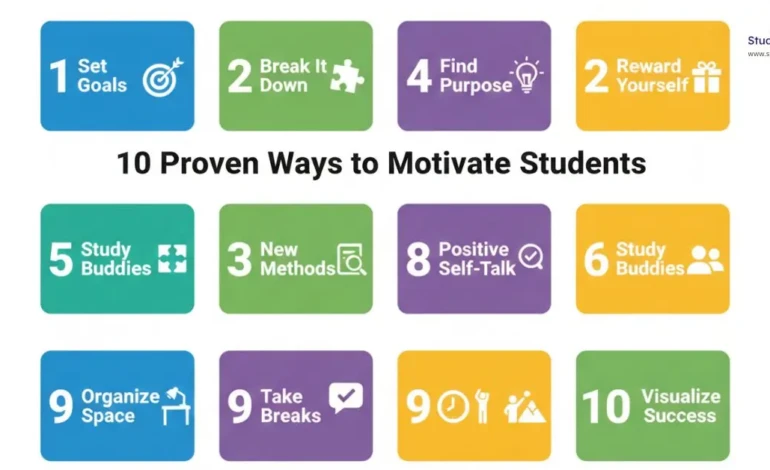10 Ways to Boost Your Emotional Well-being | Expert Guide

Emotional well-being is essential for a happy and balanced life. In this guide, we will share ten expert tips to enhance your mental health. You’ll discover how to find lasting peace and unlock your full potential.

Table of Contents
Key Takeaways
• Find out how emotional balance works and how it affects your everyday life
• Understand the main parts of mental health and how to add them to your daily habits
• Look into mindfulness and meditation to help you feel calm inside
• Learn why having good support and relationships is important
• See how working out can improve your emotional health
• Discover useful ways to manage stress by changing your lifestyle
• Make self-care and setting boundaries a priority for your personal Development
Understanding Emotional Well-being, how to improve emotional well-being
Emotional well-being is key to our mental health. It’s important to understand it to grow and find happiness. This part talks about the science of emotional balance and how it affects our lives.
The Science Behind Emotional Balance
Emotional well-being is made up of how our brain, hormones, and body work together. Studies show that chemicals like serotonin and dopamine help keep us balanced. When these chemicals are functioning properly, we feel happier, stronger, and more at ease.
Key Parts of Mental Wellness
- Self-awareness and emotional intelligence
- Stress management and coping skills
- Healthy relationships and social connections
- Mindfulness and being aware of the present moment
- Balanced lifestyle and self-care habits
How It Affects Our Daily Life
Emotional well-being has a big impact on our everyday lives. When we manage our emotions well, we perform better, build stronger relationships, and feel more satisfied. However, if we neglect our emotional needs, it can lead to burnout, anxiety, and depression. These issues can really lower our quality of life.
“Emotional well-being is not just a luxury, but a necessity for a fulfilling and meaningful life. It is the foundation upon which we build our personal and professional successes.”
By learning about emotional balance and mental wellness, we can improve our emotional health. This can make our daily lives better.
Creating Healthy Daily Routines for Mental Stability
Creating a balanced daily routine is key for emotional well-being and mental health. It helps manage exam stress and boosts mental stability.
Let’s look at some ways how to develop a routine that supports your mental health.
Start your day with activities that take care of yourself and help your mind and body feel good. Here are some morning habits you might want to try:
• Begin with some light exercise or stretching to get your energy up.
• Consider mindfulness or meditation to help you feel less stressed.
• Eat a healthy breakfast to give your brain the energy it needs.
• Set aside time for things you enjoy, like reading or writing in a journal.
During the day, use your time wisely. Focus on what’s important but remember to take breaks too. This balance will help you manage schoolwork, projects, or studying for tests without feeling overwhelmed.
At night, create a relaxing routine to get ready for bed. This could include:
1. Cutting down on screen time and doing calming activities.
2. Trying stress-relief methods like deep breathing or yoga.
3. Ensuring you get enough good sleep, which is really important for your mental health.
By paying attention to your emotional well-being every day, you can build a strong mental base. Being consistent is key, so discover what works best for you and keep at it.
| Healthy Routine Components | Benefits for Mental Health |
| Morning self-care activities | Energize, reduce stress, and promote focus |
| Balanced time management | Prevent burnout and maintain emotional balance |
| Evening wind-down rituals | Improve sleep quality and facilitate relaxation |
Having a healthy daily routine is a powerful tool for emotional well-being and mental stability. By focusing on self-care, time management, and rest, you can face daily challenges, including exam stress, with more resilience and peace.

Mindfulness and Meditation Practices for Inner Peace
Mindfulness and meditation are great for emotional well-being and mental health. They help support your child’s growth and offer a way for everyone to find peace. These practices bring clarity, focus, and emotional balance.
Getting Started with Meditation
Starting meditation might seem hard, but it’s worth it. Spend a few minutes each day sitting quietly. Breathe deeply and focus on yourself. Start with 5-10 minutes and grow as you get more comfortable.
Different Mindfulness Techniques
- Breath Awareness: Focus on your breath, noticing the sensations as you inhale and exhale.
- Body Scan: Pay attention to your body, noticing any sensations or tensions.
- Loving-Kindness (Metta): Send kindness to yourself and others.
- Guided Visualizations: Use calming images in meditations led by a teacher or recording.
Creating a Steady Routine
Staying consistent is really important for getting the benefits of mindfulness and meditation. Try to include these practices in your everyday life, even if it’s only for a few minutes. Experiment with different methods to see what suits you best. Also, include your child to help with their emotional health as well.
| Meditation Technique | Benefits | Duration |
| Breath Awareness | Reduces stress, improves focus | 5-15 minutes |
| Body Scan | Promotes relaxation, body awareness | 10-20 minutes |
| Loving-Kindness (Metta) | Cultivates compassion, reduces negative emotions | 10-20 minutes |
| Guided Visualizations | Reduces anxiety, enhances positive mood | 15-30 minutes |
The journey to emotional well-being and mental health is lifelong. Mindfulness and meditation are valuable tools on this path. Be patient, embrace the practice, and enjoy the transformative effects.

Building Strong Support Systems and Relationships
Having a strong support network is key for your emotional well-being and mental health. It’s important to have friends, family, or join groups. This circle of support can greatly improve your emotional well-being.
For parents, it’s really important to bond emotionally with your children. A caring home setting allows them to develop emotional strength and resilience.
Ways to Create Better Relationships
- Spend quality time with your loved ones, such as having family game nights or getting together with friends every month.
- Pay attention and show that you care about what’s happening in their lives.
- Get involved in your community to connect with new people and support a good cause.
- Keep in contact with friends and family, especially when they are facing difficult situations.
- Use empathy and kind words to make your connections stronger.
| Relationship Type | Benefit for Emotional Well-Being |
| Friendships | Give a feeling of belonging, understanding, and fun times together. |
| Family Connections | Provide love, support, and a safe place during hard times. |
| Community Involvement | Help you feel purpose, connect with others, and find meaning. |
Investing in your relationships and building a strong support system boosts your emotional well-being. It also helps your loved ones and community stay mentally healthy and resilient.
“The greatest gift you can give another is the purity of your attention.”
– Richard Moss
Physical Exercise and Its Effect on Mental Health
Physical activity is really connected to how we feel mentally. When we exercise regularly, it helps us feel more balanced emotionally and is important for good mental health. By realizing how powerful movement can be, we can boost our emotional health and lead happier lives.
Best Exercises for Emotional Balance
Some exercises work better for our mental health than others. Aerobic exercises like walking fast, jogging, or biking release endorphins, which make us feel good and lower stress. Strength training, like lifting weights, can also help us feel more confident and improve our mood because it gives us a sense of achievement.
Creating an Exercise Schedule
Having a consistent exercise plan is really important for our emotional health. Try to get at least 30 minutes of physical activity on most days. Pick activities that you enjoy so it’s easier to keep doing them.
Combining Movement with Mindfulness
Mixing mindfulness with your exercise can make the mental health benefits even better. Practices like yoga, tai chi, or mindful walking help you focus on the present, which can lower stress and create a sense of calm. This complete approach supports your overall well-being.

Image 4 – Emotional Well-being
“The greatest weapon against stress is our ability to choose one thought over another.”
William James
Getting into physical activity is a strong step towards improving your emotional health and living a healthier life. By discovering the best exercises, setting up a routine, and including mindfulness, you can reap the mental health rewards of exercise.
Stress Management Through Lifestyle Changes
Life can be challenging, especially when it comes to stress. However, making smart changes in your lifestyle can really help. We will explore ways to handle stress better, which can enhance your emotional health and mental well-being.
Self-care is super important. Things like yoga, meditation, or engaging in hobbies can be very helpful. They bring a sense of calm and can reduce stress from exams.
Having healthy routines and setting boundaries is also very important. This means scheduling time for tasks and being able to say “no” when necessary. It helps you stay organized and prevents you from feeling overwhelmed.
Exercise is a great way to help your mental health. It can be something like going for a walk, taking a dance class, or hitting the gym. When you stay active regularly, it helps reduce stress, lifts your spirits, and makes you feel better overall.
By making these lifestyle changes, you can handle life’s ups and downs more easily. Don’t forget, your emotional health is important. Taking steps to manage stress can lead to a more satisfying and balanced life.
Self-Care Practices and Setting Boundaries
Taking care of your emotional and mental health is a journey. Self-care is really important on this journey. By including essential self-care habits in your daily routine, you can discover inner peace and strength. Plus, setting healthy boundaries is crucial for protecting your emotional health and supporting your child’s growth.
Key Self-Care Rituals
Self-care involves a lot of different things, like being mindful and doing fun activities. Here are some important self-care habits:
• Engaging in regular physical activities, like yoga or walking, to reduce stress and boost your mood.
• Practicing relaxation techniques, such as deep breathing or meditation, to soothe your mind.
• Spending time on hobbies and creative activities that bring you joy and fulfillment.
• Ensuring you get enough sleep and maintain a consistent sleep schedule.
• Eating a nutritious and balanced diet.
Establishing Healthy Boundaries
It’s really important to create and maintain healthy boundaries. This protects your emotional well-being and helps your child grow. Here are some tips to do this:
1. Learning to say “no” when you’re feeling too busy or tired
2. Reducing the time spent on digital devices and social media
3. Having a special area just for yourself, away from distractions
4. Communicating your needs and expectations to your family and friends
Making Time for Personal Growth
Focusing on personal growth is essential for your emotional health and your child’s development. This can involve:
• Reflecting on yourself and writing in a journal to gain better self-understanding
• Joining workshops or classes to learn new things and expand your perspective
• Setting aside time to read, learn, and discover new ideas
• Speaking with a trusted mentor or therapist for guidance and support
By taking care of yourself, establishing boundaries, and concentrating on personal growth, you can create a solid foundation for your emotional health. This will also aid in supporting your child’s mental health journey.
Conclusion
Emotional well-being is really important for a happy and balanced life. Knowing how emotions work, practicing mindfulness, and taking care of yourself are all essential. They help boost your mental health and bring you peace.
By using the tips in this guide, you can handle your emotions better. This will make you stronger and more able to deal with life’s ups and downs.
Your mental health is just as important as your physical health. By concentrating on emotional well-being, you can enjoy a better life. You’ll be more productive and discover more purpose.
Begin this journey and let emotional well-being guide you to a brighter future. It’s all about finding happiness and fulfillment.
Emotional well-being is key. It’s about looking after your mental health. Follow the suggestions in this guide to start a path of self-discovery and growth.
It’s about living a life full of peace, strong relationships, and emotional balance. Start today and make the most of your life.
FAQ
What is the importance of emotional well-being?
Emotional well-being is key to our health and happiness. It helps us manage our feelings, keep good relationships, and handle life’s ups and downs. Taking care of our emotional health can make us feel better mentally and physically, and lead to a more joyful life.
How can I improve my emotional well-being?
There are many ways to boost your emotional well-being. Try: – Practicing mindfulness and meditation – Exercising regularly – Building strong relationships – Creating healthy routines and taking care of yourself – Changing your lifestyle to manage stress better
How can parents support their child’s emotional well-being?
Parents are very important in helping their child’s emotional health. Here are some ways to help: – Talk openly and encourage your child to share their feelings – Show them how to handle tough times – Teach them to take care of themselves and be mindful – Help them learn to solve problems and be resilient – Get professional help if needed
What is the impact of exam stress on emotional well-being?
Exam stress can really affect our emotional health, causing anxiety and depression. To deal with it, try: – Studying well and managing your time – Using stress-reducing methods like deep breathing – Keeping a balance in your life with breaks and self-care – Getting help from teachers, counselors, or mental health experts
How can I create a healthy daily routine to support my emotional well-being?
A daily routine that focuses on your emotional health is very helpful. Include: – Regular exercise and physical activity – Mindfulness practices like meditation or journaling – Good sleep habits and a regular sleep schedule – Eating well and staying hydrated – Time for hobbies, socializing, and relaxation.

















2 Comments
[…] Read my blog on “Emotional Welding” […]
[…] 10 Ways to Boost Your Emotional Well-being | Expert Guide […]